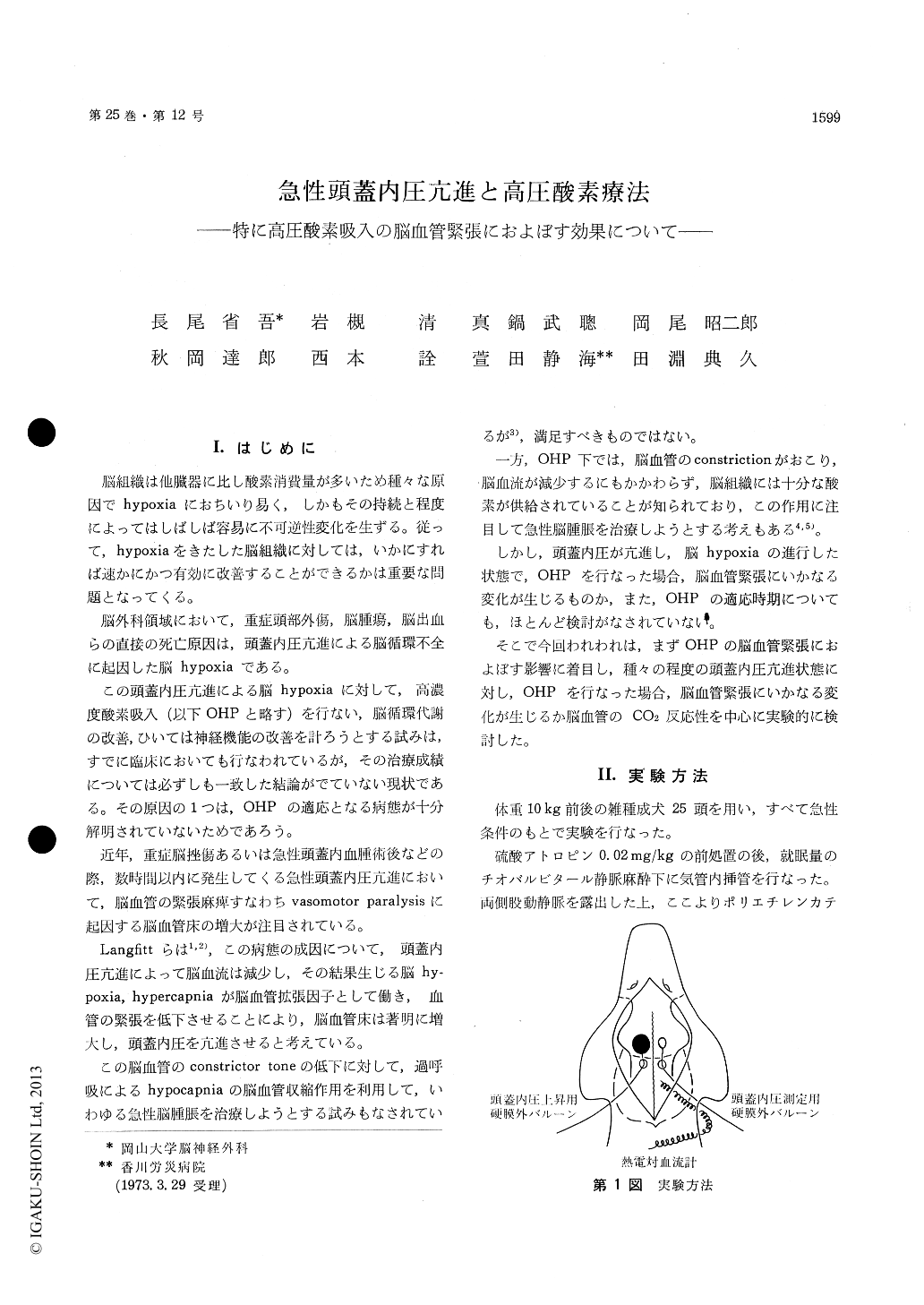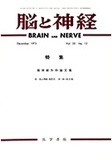Japanese
English
- 有料閲覧
- Abstract 文献概要
- 1ページ目 Look Inside
I.はじめに
脳組織は他臓器に比し酸素消費量が多いため種々な原因でhypoxiaにおちいり易く,しかもその持続と程度によってはしばしば容易に不可逆性変化を生ずる。従って,hypoxiaをきたした脳組織に対しては,いかにすれば速かにかつ有効に改善することができるかは重要な問題となってくる。
脳外科領域において,重症頭部外傷,脳腫瘍,脳出血らの直接の死亡原因は,頭蓋内圧亢進による脳循環不全に起因した脳hypoxiaである。
The effect of hyperbaric oxygen (OHP ; 2ATA O2) on cerebrovascular tone was assessed by cerebro-vascular responsiveness to CO2 in 25 anesthetized ventilated dogs in which ICP had been increased by slow inflation of extradural balloons.
OHP reduced ICP only at the stage when the cerebral circulation was still responsive to CO2, as manifested by a rise in ICP (the result of the cerebral vasodilatation), and in these instances, normal responsiveness (both increased CBF and ICP) to CO2 was recovered by OHP. When the cerebral circulation was only responsive to CO2 with increasing ICP and failed to increase CBF, if the increased ICP was reduced by the adminis-tration of mannitol (1g/kg), no additional CO2 reactivities were appeared, but in the cases of OHP, normal CO2 responsiveness (both increased CBF and ICP) was observed in spite of the same level of ICP. These results would reveal that OHP improves cerebrovascular tone not only by reduc-tion of increased ICP, but also by oxygenation of cerebral hypoxia.
When CO2 failed to influence intracranial pres-sure at high level of ICP, OHP had no effects on the cerebrovascular tone. According to these ex-perimental results, we emphasize that OHP has beneficial effects on acute brain swelling by im-proving the cerebrovascular tone.
Concerning the effects of OHP on the cerebro-vascular tone, we discussed whether OHP would improve cerebral tissue hypoxia or arterial wall hypoxia by arterial hyperoxygenation.

Copyright © 1973, Igaku-Shoin Ltd. All rights reserved.


